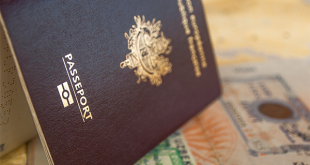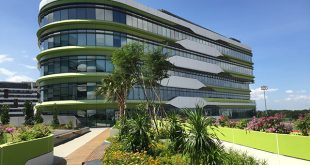Singapore, this bustling cosmopolitan hub in Southeast Asia, stands out not only for its world-class education system but also for its thriving job market. It’s no surprise therefore that many aspiring scholars choose this vibrant city-state as their higher education destination. One of the significant advantages of studying in Singapore is the opportunity to work while pursuing your degree and after graduation. In this article, we will explore the regulations, benefits, and practical tips for students who want to embark on this dual journey of education and employment in the Lion City.
Can International Students Work in Singapore While Studying
Before you can work while studying in Singapore, you must obtain a Student Pass – which is the student visa in Singapore. This pass allows you to enroll in a full-time course at a recognized educational institution in the country. To be eligible for the Student Pass, you must beforehand get admission into a registered program and meet certain requirements set by the Immigration and Checkpoints Authority (ICA) of Singapore.
Part-Time Work Eligibility for Foreign Students in Singapore
Once you have your Student Pass, you may be eligible to work part-time during your studies. The main condition is for you to have admission in one of the Singaporean higher education institutions. You have to be enrolled full-time in these institutions, and you should not be an exchange student.
Check here the list of the institutions of higher education which students are allowed to work during their studies in Singapore.
Work Limitations for Students in Singapore
While working part-time is allowed, there are some limitations you need to be aware of:
- Maximum hours: As a student, you can work a maximum of 16 hours per week during term time. However, during vacation periods, you are permitted to work full-time.
- Workplaces: You must work in sectors that are related to your university or to your area of study, if you’re working during school term.
- Work permit: You don’t need a separate work permit. Your Student Pass serves as your work pass during your course of study.
Moreover, it’s crucial for international students in Singapore to check with the Immigration and Checkpoints Authority (ICA) or the Ministry of Manpower (MOM) for the most up-to-date regulations.
Finding Part-Time Jobs for Student Pass Holders in Singapore
Securing part-time employment in Singapore requires proactive effort and determination. Here are some strategies to help you find suitable opportunities:
- Campus Jobs: Many universities and institutions have on-campus job opportunities, making it convenient for students to work between classes.
- Job Portals: Explore job portals like JobsCentral and Indeed Singapore. There, you can search for part-time positions that match your skills and schedule.
- Networking: Attend career fairs and networking events on your campus to connect with potential employers.
- Internships: Consider applying for internships related to your field of study, as they can provide valuable experience and networking opportunities.
- Approach Employers: Don’t hesitate to approach local businesses, especially those located near your university. Inquire about part-time positions or internships they may offer.
Work While Studying in Singapore: Salary
The minimum wage for part-time work in Singapore varies depending on the industry and type of job. On average, you can expect to earn around SGD 9 per hour. Some industries may offer higher wages for specialized roles or on weekends and public holidays.
Taxes and Work Regulations
As a student working part-time in Singapore, you are subject to the country’s tax regulations. However, the good news is that your income tax is usually at a lower rate. And as a student, you may be eligible for tax exemptions or rebates. It’s advisable to consult the Inland Revenue Authority of Singapore (IRAS) or a tax consultant for guidance on your specific tax situation.
Balancing Work and Studies
While working part-time can be a valuable experience, it’s crucial to strike a balance between your job and your studies. Here are some tips to help you manage your student’s time effectively:
- Create a schedule that allocates sufficient time for classes, assignments, and exams. There’s no need to emphasize that you should prioritize your academic responsibilities.
- Inform your employer about your class timetable and examination periods. Many employers in Singapore are understanding and supportive of students’ educational commitments.
- To stay organized, keep track of your work hours, deadlines, and assignments. This will ensure you meet both academic and professional obligations.
- Seek Support if you find it challenging to manage your workload. Also, don’t hesitate to get counsel from your professors or academic advisors.
Also, make sure to get familiar with the work and business etiquette in Singapore. For that, check our article on the customs and traditions in Singapore, we have a full section on the subject.
Benefits of Working While Studying in Singapore
Working while studying in Singapore can be a valuable experience, offering several benefits:
Financial Support
Earning a part-time income can help cover living expenses, including accommodation, food, and transportation.
Experience and Skill Development
Part-time jobs provide an opportunity to gain practical skills and work experience in a real-world setting. This experience can enhance your resume and improve your employability after graduation.
Networking
Working part-time allows you to connect with local professionals and build a professional network in Singapore, which can be advantageous for future career prospects.
Cultural Immersion
Interacting with locals in a workplace setting provides a deeper cultural experience and helps you integrate into Singaporean society.
Singapore Stay Back for International Students: Career Opportunities After Graduation
Beyond academics, one of the most attractive aspects of studying in Singapore is the opportunity for post-study work. The Singaporean government recognizes the value of international talent and aims to retain skilled graduates in the country’s workforce.
Can International Students Work in Singapore After Graduation
International students whose student pass expired are granted a 3-month short-term pass allowing to stay back in Singapore after graduation. The purpose is to give them some additional time to remain in the country and look for a job. However, this visa type doesn’t allow them to work. But once they land a job in Singapore, their employer needs to apply for an employment pass for them. There are several post-study work visa, graduates can apply for in Singapore. They vary in terms of eligibility, types of jobs, and application process.
Singapore Post Study Work Visa Types and Duration
Several work visas allow international students who have successfully completed their studies in Singapore to work and gain valuable professional experience in Singapore. Here we give you a brief description of the most common of these visas / passes:
Long-Term Visit Pass (LTVP)
This pass is a longer stay back visa for foreign students who have graduated from a higher education institution in Singapore. It’s a kind of intermediary pass for these students that is valid for a year and is non-renewable. Its holder can therefore use this visa to research a job. Moreover, the LTVP visa is only for graduates from a list of institutions on the ICA’s website.
Employment Pass (EP)
This is a very common post study work visa in Singapore, which is suited for graduates looking for managerial, executive or specialized positions. Along with their university degree, eligibility criteria include for the graduates to find a job with a minimum salary of SGD 4,500 per month. It also requires the prospective employer’s sponsorship to obtain this work visa. And lastly, the EP has a validity of 2 to 3 years, and is renewable.
S Pass
Another very common visa among international graduates to work in Singapore. The difference with the EP is that the S Pass instead is for mid-skilled graduates, looking for specialist or technician positions. Also, the S Pass requires a minimum qualifying salary of SGD 2,400 per month along with the sponsorship of the future employer. As for the validity period, it’s for 2 years, and the pass is renewable.
EntrePass
This is a visa option for international graduates who have either started or plan to operate their own business in Singapore. The requirement for this visa is for their business to be registered with the Accounting and Corporate Regulatory Authority (ACRA) in Singapore. Also, the start-up must be either funded through venture capital or owns innovative technologies. It also must be less than 6 months old on the date of the visa application. Furthermore, the EntrePass is valid for 1 to 2 years and is renewable.
Convert a Student Pass To an Employment Pass in Singapore: Finding Employment
Finding employment in Singapore after graduation can be a smooth process if you follow these steps:
- Networking: Build a strong professional network in Singapore by attending industry events, seminars, and networking sessions. Networking while you’re still in college can open doors to some interesting career opportunities.
- Continuous Learning: Stay updated with industry trends. And if needed, consider pursuing further education or professional certifications to enhance your career prospects.
- Cultural Adaptation: Embrace Singapore’s diverse culture and work environment. Cultural adaptability can be a valuable asset in your career, as business culture in the country might include some subtleties you might need to master.
- Financial Planning: Singapore is known for its high living standards, so effective financial planning is crucial. While you’re still in the job researching period, it’s always helpful to create a budget that considers your living expenses and savings goals.
- Internships: If your study abroad program included an internship, you might be able to use them as stepping stones to full-time employment. In this case, if the employer is impressed enough with your skills during the internship, this might lead to a full-time job after graduation.
Conclusion
Obtaining a work permit in Singapore during and after completing your studies opens doors to a world of professional opportunities in this dynamic city-state. By understanding the eligibility criteria, application process, and the options for renewal and long-term residency, you can chart a successful career path in Singapore’s thriving job market.
In summary, a work permit in Singapore is not just a document. It’s your gateway to realizing your career aspirations in one of Asia’s most dynamic and economically robust countries. Whether you seek a fulfilling job or aim for an international work experience, Singapore welcomes talent and ambition with open arms.




 Aljawaz Your guide to study abroad
Aljawaz Your guide to study abroad










